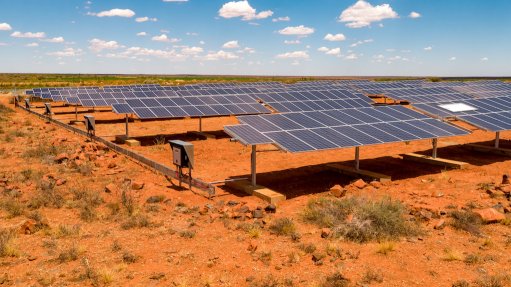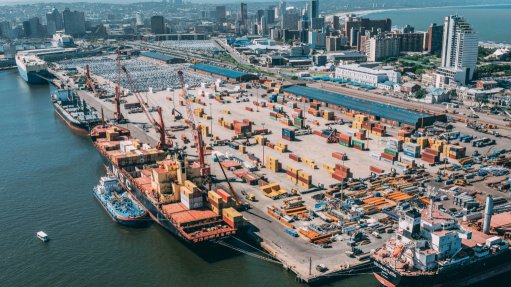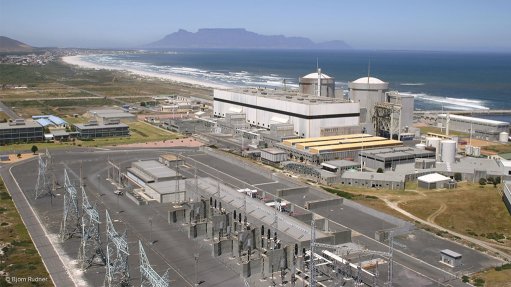Business interruption, energy crisis, climate change top oil and gas industry concerns
Business interruption was named the top risk in the oil and gas sector by 45% of respondents to a survey conducted by insurance and risk company Allianz Risk Barometer.
This was followed by the energy crisis at 34%, climate change risks at 32%, fire and explosions at 26% and natural catastrophes at 23% of responses.
Climate change risks have increased from the number four to the number three risk owing to its contribution to greenhouse-gas emissions and vulnerability to the physical impacts of climate change such as extreme weather events and sea-level rise.
"Mitigation strategies in the sector should prioritise reducing emissions through investments in carbon capture and storage technologies, transitioning towards cleaner energy sources such as natural gas and renewables, and implementing methane reduction initiatives in extraction and production processes," Allianz advises.
"In addressing climate change risks, enhancing resilience to climate-related impacts through infrastructure upgrades, risk assessments and adaptation measures is crucial. Collaboration with governments, stakeholders and communities to develop sustainable energy policies and transition strategies is also essential.
"Proactive measures to address climate change risks are imperative for the long-term sustainability and competitiveness of the oil and gas industry in a transitioning energy landscape, research suggests," highlights Allianz.
Business interruption remains a top risk in the oil and gas sector owing to various factors, such as supply chain disruptions, geopolitical instability and fluctuations in oil prices.
Business interruption mitigation strategies should prioritise implementing robust contingency plans, diversifying operations across multiple geographic regions and investing in technology for real-time monitoring of production facilities and pipelines to detect and respond to potential disruptions promptly, the financial services firm says.
"Establishing strong relationships with suppliers and partners, maintaining adequate inventory levels and developing alternative transportation routes can help mitigate the impact of interruptions.
"Proactive risk management and resilience-building measures are essential for oil and gas companies to mitigate business interruption risks and maintain operational stability in a volatile environment," Allianz says.
Meanwhile, energy crisis risks retain the second spot stemming from factors such as supply chain disruptions, geopolitical tensions and regulatory changes impacting production and distribution.
"Mitigation strategies in the sector should prioritise diversifying energy sources and investing in renewable-energy technologies to reduce dependency on fossil fuels and enhance resilience to energy shortages," the company advises.
Additionally, implementing energy efficiency measures in operations and adopting advanced technologies for extraction and refining processes can optimise resource utilisation and mitigate the impact of energy crises.
Collaboration with governments, industry stakeholders, and research institutions to develop sustainable energy policies and strategies is crucial.
Proactive measures to enhance energy efficiency and diversify energy sources are essential for oil and gas companies to mitigate energy crisis risks and ensure long-term sustainability in a rapidly evolving energy landscape, according to reports, Allianz recommended.
Meanwhile, to mitigate fire and explosion risks, the oil and gas sector should invest in advanced technologies for early detection of potential hazards, such as infrared cameras and gas detection systems, which can enable swift intervention and containment of incidents.
"Fire and explosion risks rank fourth owing to the volatile nature of hydrocarbons and the complex infrastructure involved in exploration, production and transportation.
"Mitigation strategies should prioritise implementing robust safety protocols, including regular equipment inspections, hazard assessments, and employee training on emergency response procedures."
Additionally, establishing strict regulations and standards for the construction and operation of facilities and pipelines, as well as maintaining adequate emergency response capabilities, is crucial.
"Studies recommend that proactive risk management and adherence to stringent safety measures are essential for oil and gas companies to mitigate the risk of fire and explosion incidents and ensure the safety of workers and surrounding communities," Allianz points out.
Further, natural catastrophes ranked fifth as a new entrant in the oil and gas industry owing to risks such as hurricanes, earthquakes and tsunamis, which can disrupt operations, damage infrastructure, and pose environmental threats.
Mitigation strategies for these risks should include conducting thorough risk assessments to identify vulnerable assets and implementing measures to enhance resilience, such as reinforcing infrastructure, relocating critical facilities away from high-risk areas and investing in advanced monitoring and early warning systems.
Establishing robust emergency response plans and coordination mechanisms with local authorities and responders can enable swift and effective response to natural disasters and ensure the safety of personnel and assets.
Comments
Press Office
Announcements
What's On
Subscribe to improve your user experience...
Option 1 (equivalent of R125 a month):
Receive a weekly copy of Creamer Media's Engineering News & Mining Weekly magazine
(print copy for those in South Africa and e-magazine for those outside of South Africa)
Receive daily email newsletters
Access to full search results
Access archive of magazine back copies
Access to Projects in Progress
Access to ONE Research Report of your choice in PDF format
Option 2 (equivalent of R375 a month):
All benefits from Option 1
PLUS
Access to Creamer Media's Research Channel Africa for ALL Research Reports, in PDF format, on various industrial and mining sectors
including Electricity; Water; Energy Transition; Hydrogen; Roads, Rail and Ports; Coal; Gold; Platinum; Battery Metals; etc.
Already a subscriber?
Forgotten your password?
Receive weekly copy of Creamer Media's Engineering News & Mining Weekly magazine (print copy for those in South Africa and e-magazine for those outside of South Africa)
➕
Recieve daily email newsletters
➕
Access to full search results
➕
Access archive of magazine back copies
➕
Access to Projects in Progress
➕
Access to ONE Research Report of your choice in PDF format
RESEARCH CHANNEL AFRICA
R4500 (equivalent of R375 a month)
SUBSCRIBEAll benefits from Option 1
➕
Access to Creamer Media's Research Channel Africa for ALL Research Reports on various industrial and mining sectors, in PDF format, including on:
Electricity
➕
Water
➕
Energy Transition
➕
Hydrogen
➕
Roads, Rail and Ports
➕
Coal
➕
Gold
➕
Platinum
➕
Battery Metals
➕
etc.
Receive all benefits from Option 1 or Option 2 delivered to numerous people at your company
➕
Multiple User names and Passwords for simultaneous log-ins
➕
Intranet integration access to all in your organisation


















